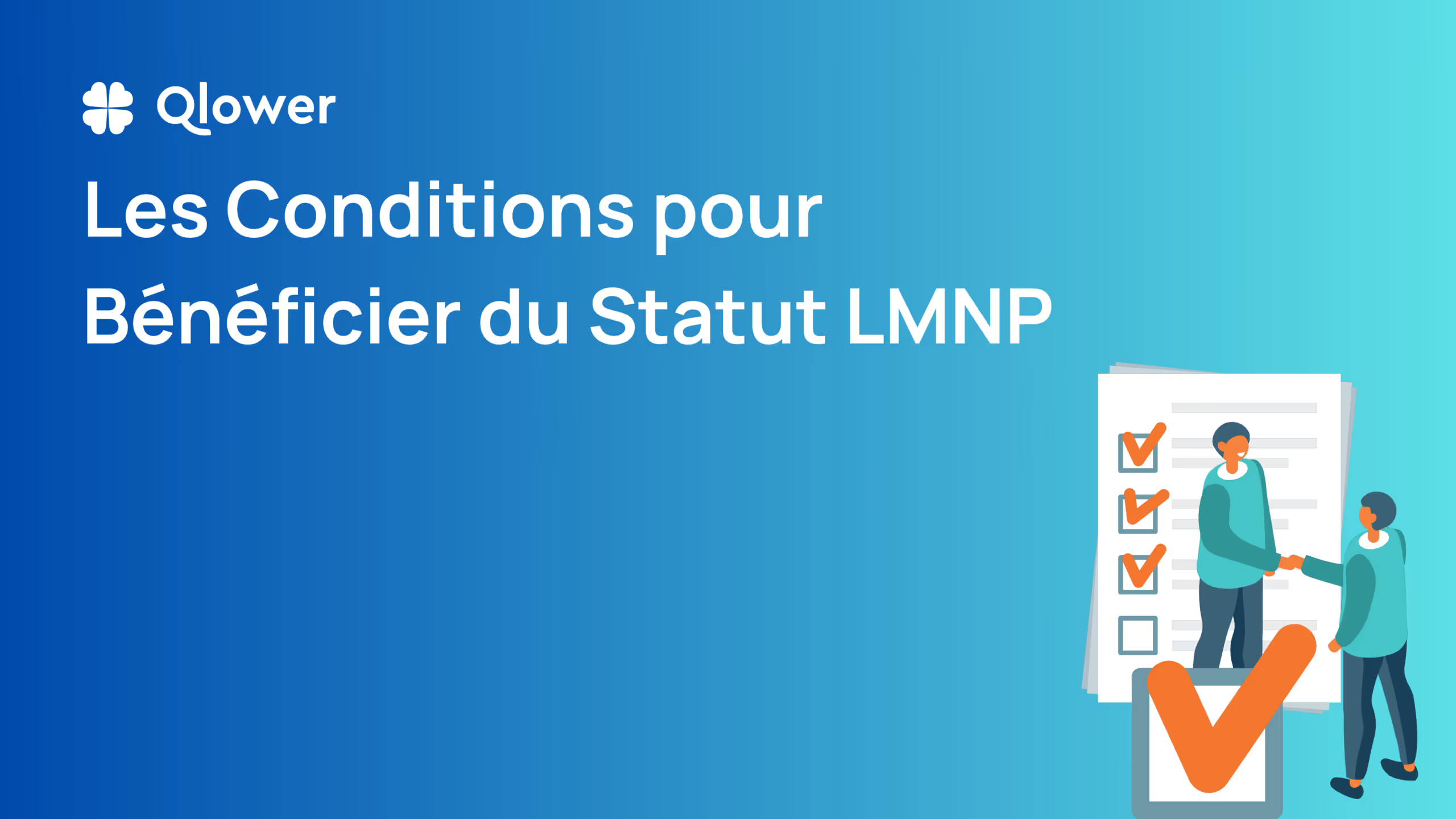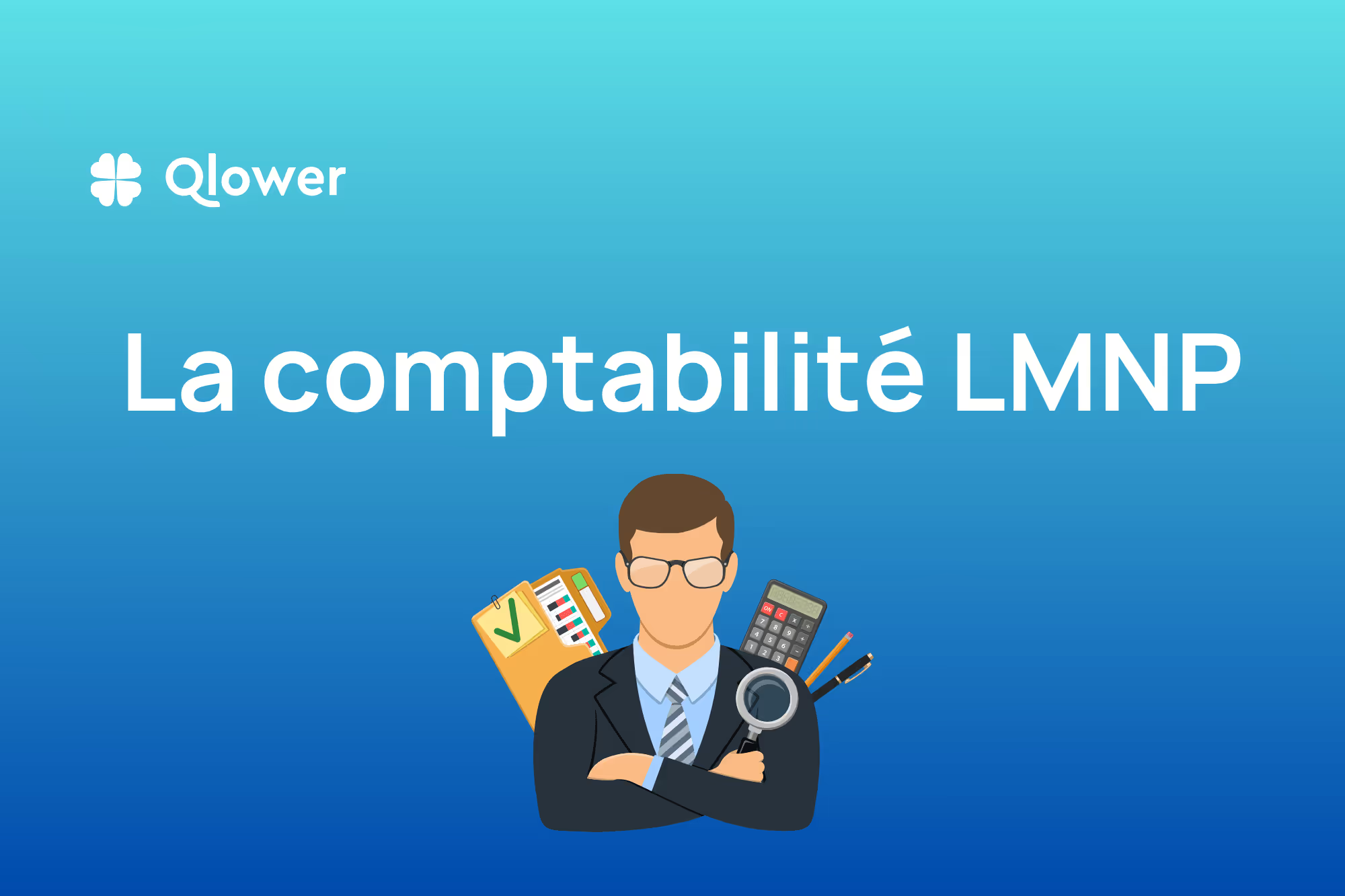The Conditions for Benefiting from LMNP Status in 2025
Furnished rentals are accompanied by specific criteria relating to the lessor, the real estate, and the rental income generated. These conditions include aspects such as the type of housing, its furnishings, the applicable tax regime, as well as the revenue thresholds not to be exceeded. In addition, the LMNP status promises not only to reduce the tax burden linked to your rental investment through advantageous regimes such as the Micro-Bic Or the Real BIC regime, but also to value your rental investment thanks to mechanisms ofdamping And of Deduction of expenses.
Basic criteria for LMNP status
The status of Non-Professional Furnished Renter (LMNP) attracts many investors thanks to its flexibility and tax advantages. Thus, it is necessary to understand the basic criteria that govern this device.
Owner conditions
- The owner must be a natural person who carries out the furnished rental business in a non-professional manner.
- The annual revenue from this rental activity must not exceed €23,000 and represent more than 50% of the total income of the fiscal household.
- The owner is required to declare the income from furnished rentals under the appropriate tax regime (Micro-Bic or Real Diet).
Real estate conditions
- Property type : apartments, houses, studios, residences with services (students, seniors, Of tourism), mobile homes, motorhomes,... provided they are furnished.
- Upholstery characteristics : the accommodation must be equipped in such a way as to allow immediate occupancy by the tenant, including standard comfort items (bed, table, chairs, kitchen equipment, etc.).
- Habitability criteria : the property must respect the standards of habitability and decency defined by law, guaranteeing the safety and health of the tenants.
Rental income conditions
- Revenue ceilings : for the micro-BIC regime, annual revenue must not exceed €77,700 for 2025 for long-term rentals. Beyond that, the real regime applies.
- Lump sum allowance : under the micro-BIC regime, a 50% discount for long-term rentals is applied to revenue to cover expenses.
With regard to tourist or seasonal rentals, the rules vary according to the classification and location. For unclassified rentals, a 30% discount at the 50% rate is applied on income up to €15,000 only. Beyond €15,000 in gross income, the Real regime applies. In tense areas, the 30% reduction and the ceiling of €15,000 or €77,700 are currently being debated (March 2024). For tourist rentals classified in rural areas or winter sports resorts, a 51% discount is also applied to income up to €15,000.
- Deduction of actual expenses : by opting for the real regime, the owner can deduct all real expenses and depreciation from his rental income, thus optimizing his taxation.
Details of real estate conditions for the LMNP
While investing in LMNP is characterized by its flexibility and numerous advantages. However, it is necessary to master the specific conditions associated with real estate. These criteria not only ensure compliance but also pave the way for maximum optimization of your investment.
Types of goods eligible for LMNP
Furnished rentals in LMNP encompass a wide range of properties, ranging from classic new apartments or Ancients, houses or studios. Serviced residences called LMNP Géré, such as student, senior or tourist residences, or even health institutions, are also an option because of their ease of management that is fully delegated to an operator.
Old and new properties : as long as the property is furnished and intended for rent, it can be new or old. The important thing is that it meets the expectations of tenants in terms of comfort and services and location.
Specific furniture and equipment requirements
For a home to be considered furnished, it must offer everything necessary for immediate residence, which implies:
- Mandatory furniture : bed, storage, table and chairs. The objective is to provide minimal comfort allowing the tenant to install directly.
- Kitchen equipment : refrigerator, stovetop, dishes and utensils. An equipped kitchenette is often a minimum requirement.
- Living equipment : depending on the size and status of the property, other equipment may be added but is not mandatory, such as washing machine, television, and internet connection.
A precise list given by the Government and stable for several years is available here: https://www.service-public.fr/particuliers/vosdroits/F34769
Constraints related to the location and destination of the property
- Zoning and local regulations : some municipalities impose restrictions on short-term rentals, particularly relevant for furnished tourist rentals. It is important to learn about local rules before investing.
- Destination of the property : the property must be intended for housing. This generally excludes commercial or professional premises, unless prior transformation into housing in accordance with habitability standards.
- Accessibility and attractiveness : location remains a key factor in the success of an LMNP investment. A property located in an area with high rental demand, close to services, transport and employment areas, will maximize your chances of occupancy and profitability.
The furnished rental of professional premises is still possible but involves certain obligations. All equipment necessary for the activity must be provided: desks, armchairs, storage furniture, as well as the office, computer and telephone equipment necessary for the activity. Rents are then subject to VAT.
Tax aspects of the LMNP
The fiscal aspects of the Non-Professional Furnished Renter (LMNP) status include income thresholds, the choice between micro-BIC and real regimes, as well as the necessary tax declarations and accounting obligations. This is an important area for any investor who wants to optimize their real estate investment.
Income thresholds and tax implications
French tax legislation defines specific thresholds for income from furnished rentals, directly influencing the tax status and obligations of renters.
- Revenue threshold : to benefit from LMNP status, annual revenue must not exceed €23,000 and constitute more than 50% of the total household income. Exceeding this threshold could requalify the investor as a Professional Furnished Rental Company (LMP).
Micro-BIC diet vs real diet: advantages and choices
The choice between the micro-BIC regime and the real regime is decisive in the fiscal management of LMNP rental income.
- Micro-Bic diet : offers a flat rate reduction of 50% for long-term rentals on rental income, simplifying tax reporting without the need to justify the charges or to use a real estate tax specialist such as Qlower.
For short term rentals, rules vary according to classification and location. For unclassified rentals, a 30% discount is applied to income up to €15,000 only. In tense areas, the 30% reduction and the ceiling of €15,000 or €77,700 are still being debated. For tourist rentals classified in rural areas or winter sports resorts, a 51% discount is also applied to income up to €15,000.
- Benefits : simplicity, lack of detailed accounting.
- Threshold : applicable if the annual revenue is less than €77,700 for 2025.
- Real regime : allows the deduction of all real expenses and depreciation of the property and furniture.
- Benefits : greater potential for tax optimization, especially for owners with high expenses or significant investments in furniture and renovation. It is also always more interesting in the case of a rental investment, since the acquisition costs (notary, agency, broker) are deductible.
Tax declaration and accounting obligations
The fiscal management of the LMNP status requires particular attention to declarations and bookkeeping.
- Annual statement : income must be declared via the 2042-C PRO form for the micro-BIC or via a specific income statement for the real regime. You must then enter your gross rental income in box 5ND.
- Accounting requirements :
- For the micro-BIC : simplified outfit.
- For the real regime : the need to keep complete accounts, with journal-book, general ledger and annual balance sheet, thanks to a solution like Qlower.
The assistance of an expert specialized in LMNP is invaluable in optimizing the declaration and complying with legal obligations, especially for investors under real regime.
LMNP benefits and opportunities
The status of Non-Professional Furnished Renter (LMNP) offers a unique balance between tax advantages, investment flexibility and diversification.
LMNP tax advantages
The LMNP is renowned for its significant tax advantages, which make it possible to optimize the profitability of furnished rental investments:
- The micro-BIC regime applies a 50% discount on revenue for conventional long-term rentals.
- Deduction of actual expenses: with the real regime, all real expenses (repairs, loan interests, management fees, acquisition costs, etc.) as well as the depreciation of the property and furniture are deductible, reducing the tax on rental income.
- Exemption from CFE: under certain conditions, LMNPs can be exempt from the Corporate Property Tax:
- If you rent premises classified as “furnished tourist accommodation” that are part of your personal home, in accordance with article L 324-1 of the Tourism Code.
- If your annual turnover is less than or equal to 5,000 euros, which may be the case at the beginning of a rental investment activity or if you have a limited number of rental properties.
- If you occasionally rent part of your personal home without the intention of making a sustainable profit, for example by renting a room to tourists during the summer season.
- If you rent space in a service residence operated under a commercial lease, the responsibility of the CFE lies with the operator, in particular with regard to student residences or residences for the elderly.
Flexibility and investment opportunities
The LMNP status offers great flexibility, making real estate investment accessible and adaptable to various investor profiles:
- Apartments, studios, service residences... the LMNP accommodates a wide range of property types, thus offering several investment niches.
- Furnished rentals can be managed directly by the owner or entrusted to professionals, allowing adaptation to the schedule and skills of each individual.
- The furniture market allows short, medium or long term investment strategies, with resale opportunities that are generally more fluid.
Comparison with other real estate investment statuses
When comparing the LMNP to other statuses such as the Professional Furnished Rental Company (LMP) or the bare rental (unfurnished), several key differences emerge:
- Attractive taxation : unlike naked rental, the LMNP allows a fiscal optimization more significant thanks to depreciation and higher lump-sum allowances.
- Administrative simplicity : the LMNP is often perceived as more accessible for new investors than the LMP, which requires a larger volume of activity
- Potentially higher performance : furnished rentals generally offer higher rental returns than bare rentals, due to rents that are 15% higher on average and sustained demand, especially in urban, tourist or student areas.
Management and operation of a property in LMNP
Effective management and operation of your property is important to maximize the benefits of this status. Here are fundamental tips and strategies for successful management.
Tips for effective management
- Stay up to date on real estate and tax legislation to ensure the compliance of your rental business.
- Consult an LMNP expert regularly to adapt your tax strategies to legislative changes and optimize your deductions.
- Maintain and constantly improve the quality of your property to remain competitive on the market and justify higher rents.
Use of rental management technologies and services
The digital age offers powerful tools to simplify and optimize rental management.
- Use specialized software to automate rent management, contracts, and tenant communication.
- For short-term rentals, integrate online reservation systems to facilitate bookings and maximize occupancy.
- Offer online payment options to simplify transactions and speed up the rent payment process.
Strategies to maximize occupancy and revenue
The main objective of any rental investment is to optimize the occupancy rate and maximize rental income.
- Don't limit yourself to a single platform or promotion method. Use a variety of online and offline channels to reach a large audience.
- Adjust your prices based on season, demand, and local events to stay competitive while maximizing revenue.
- Offer temporary offers for periods of low occupancy to attract more renters.





